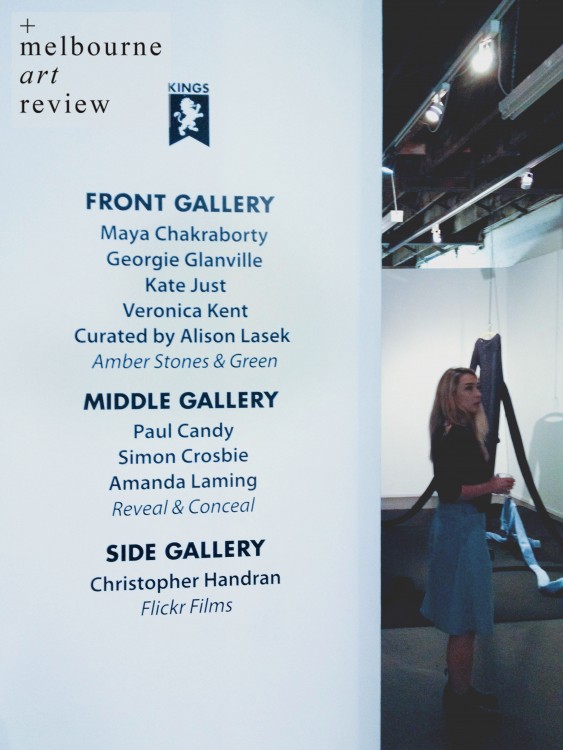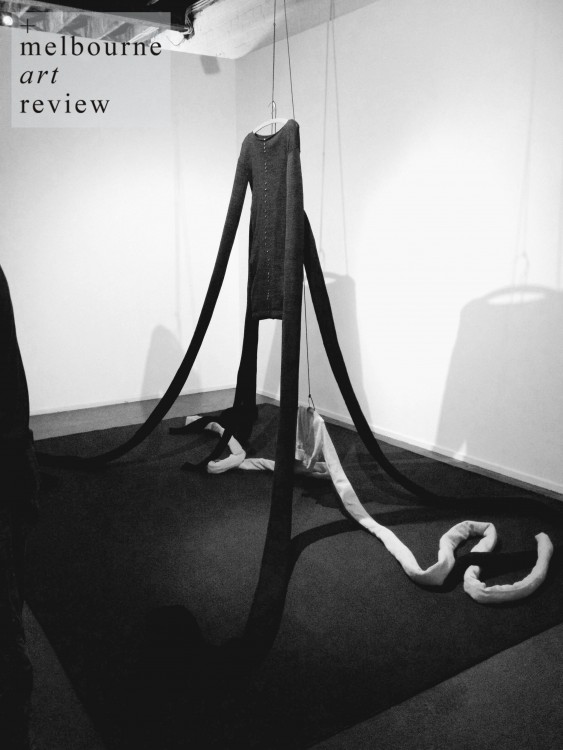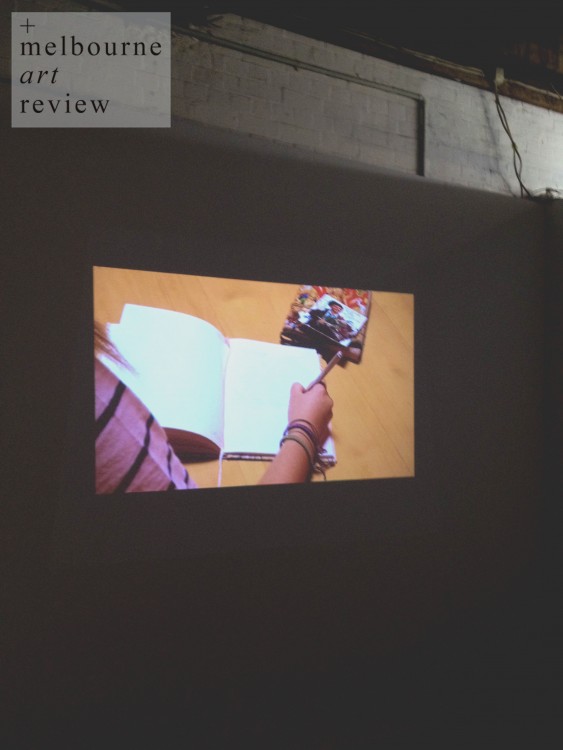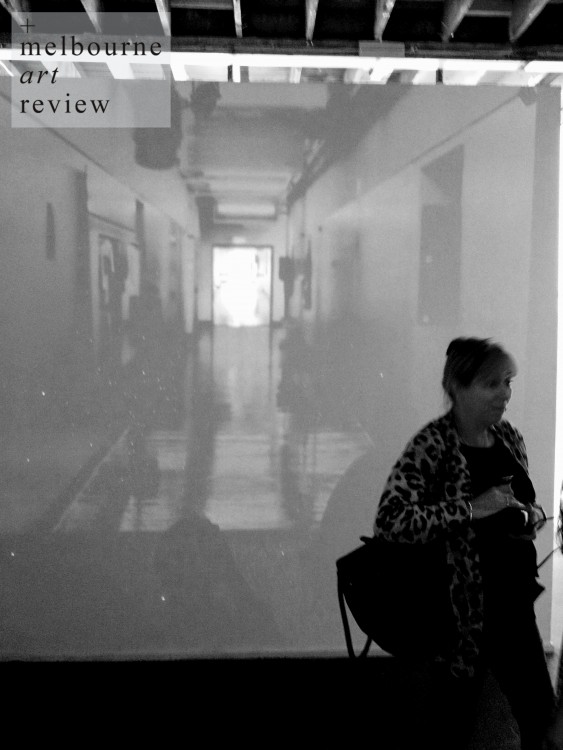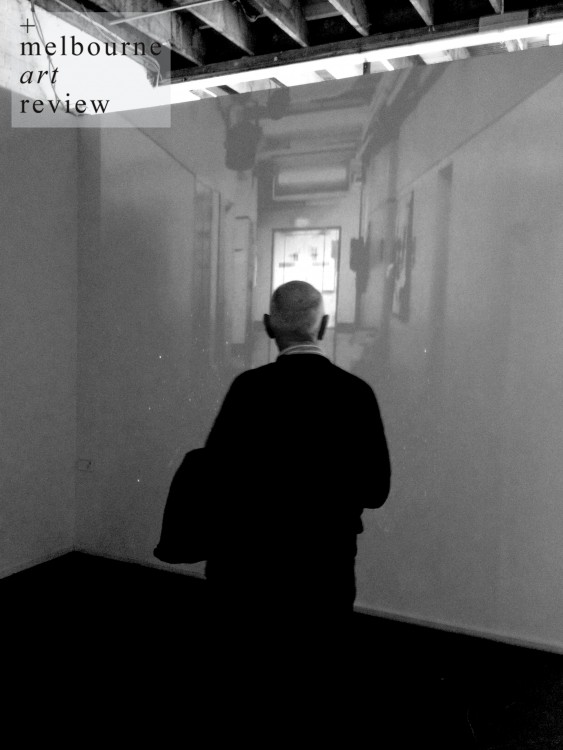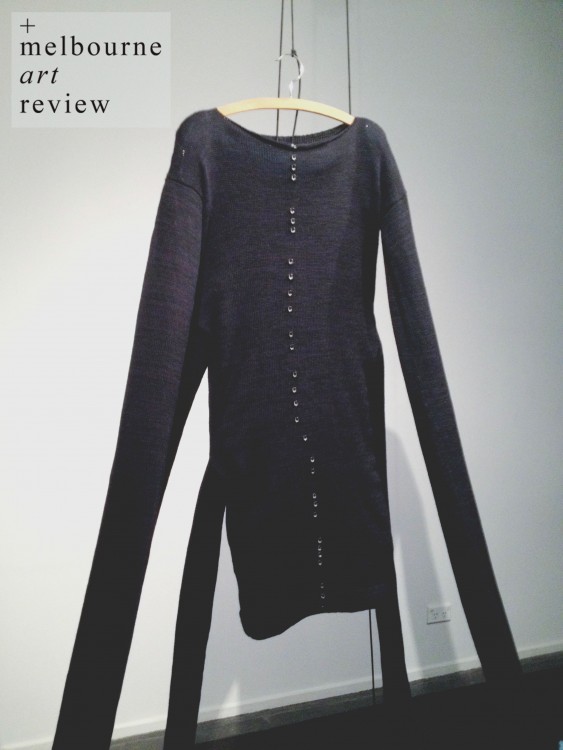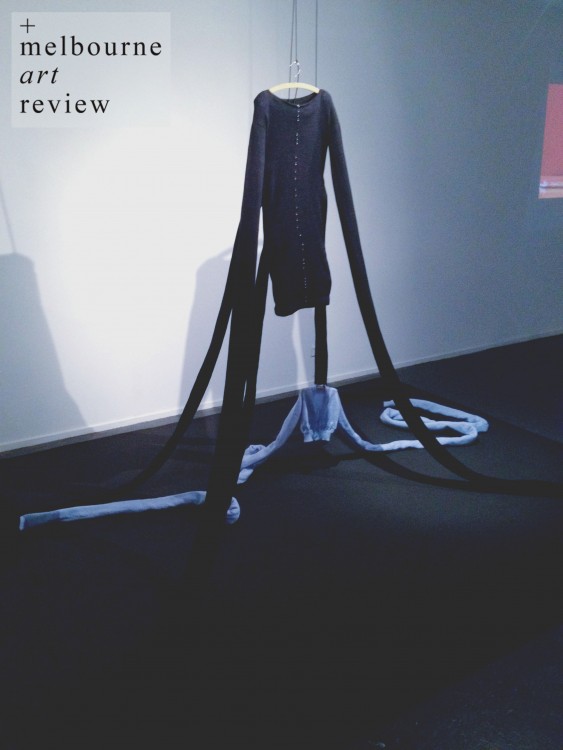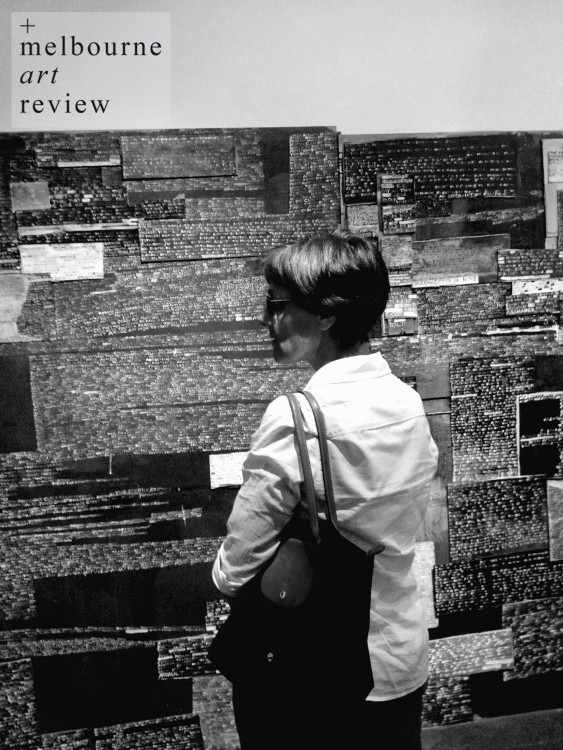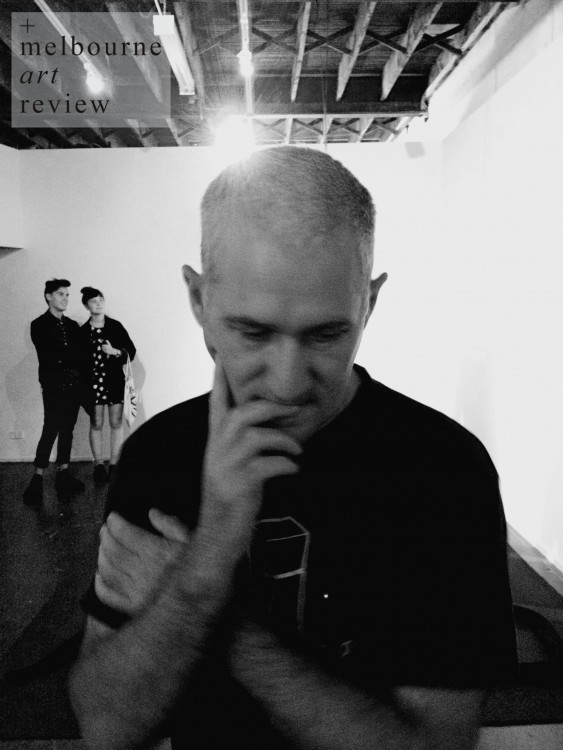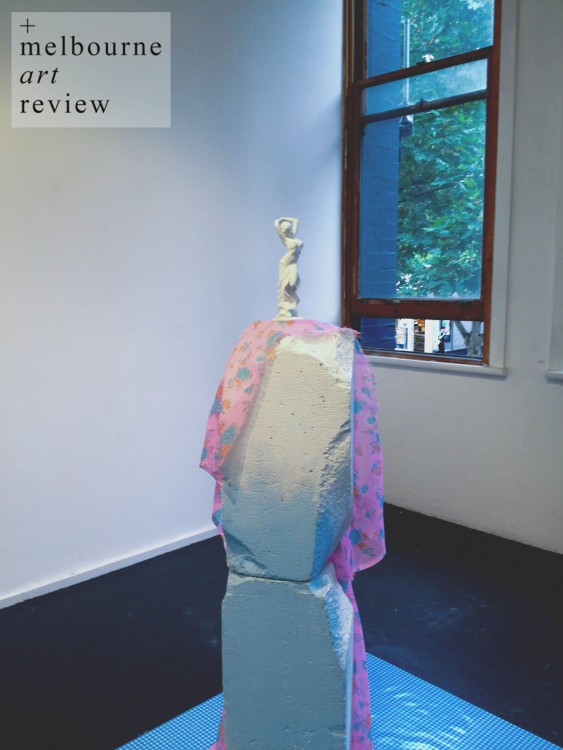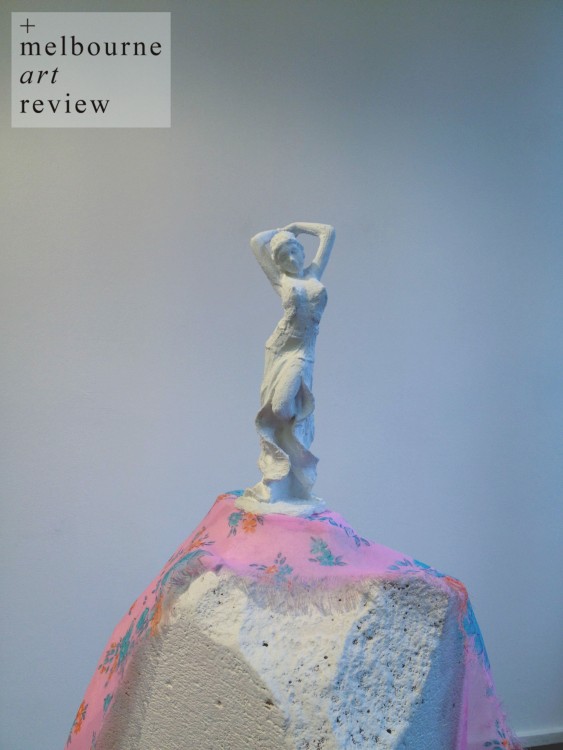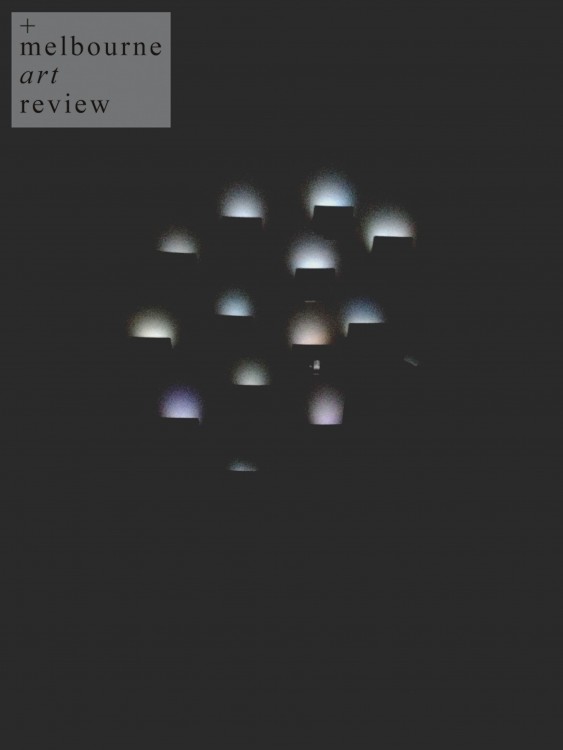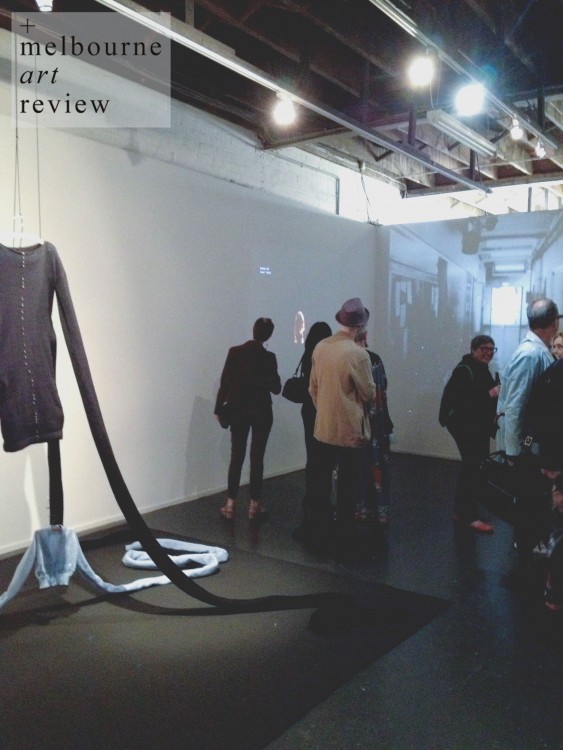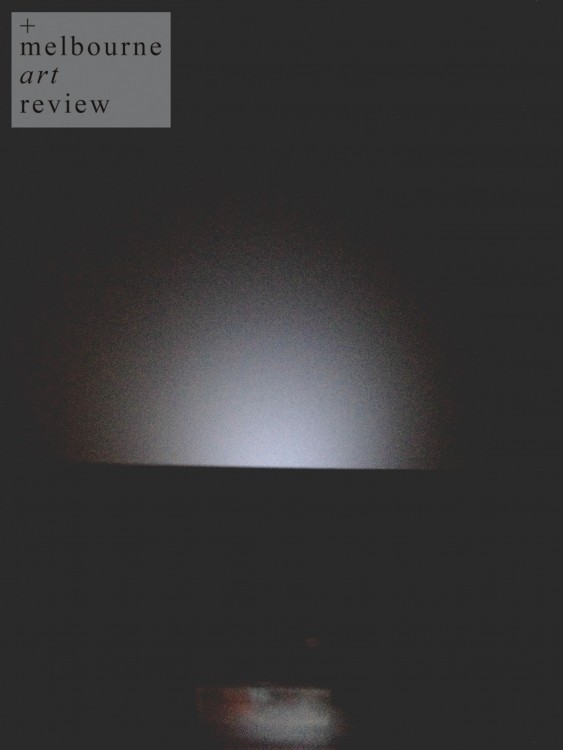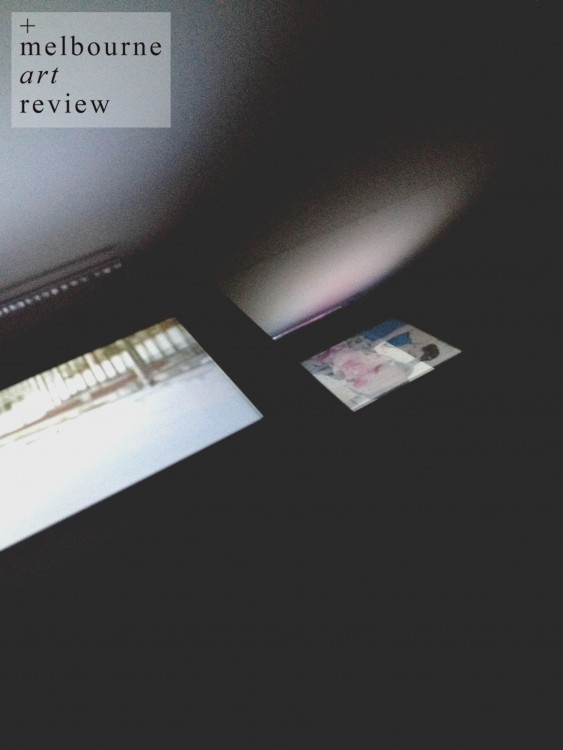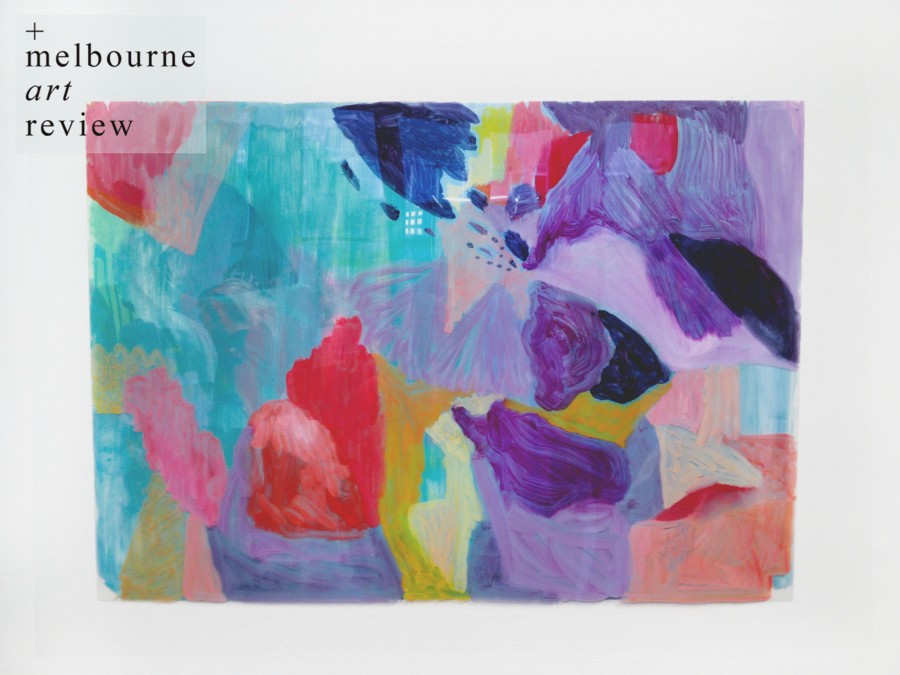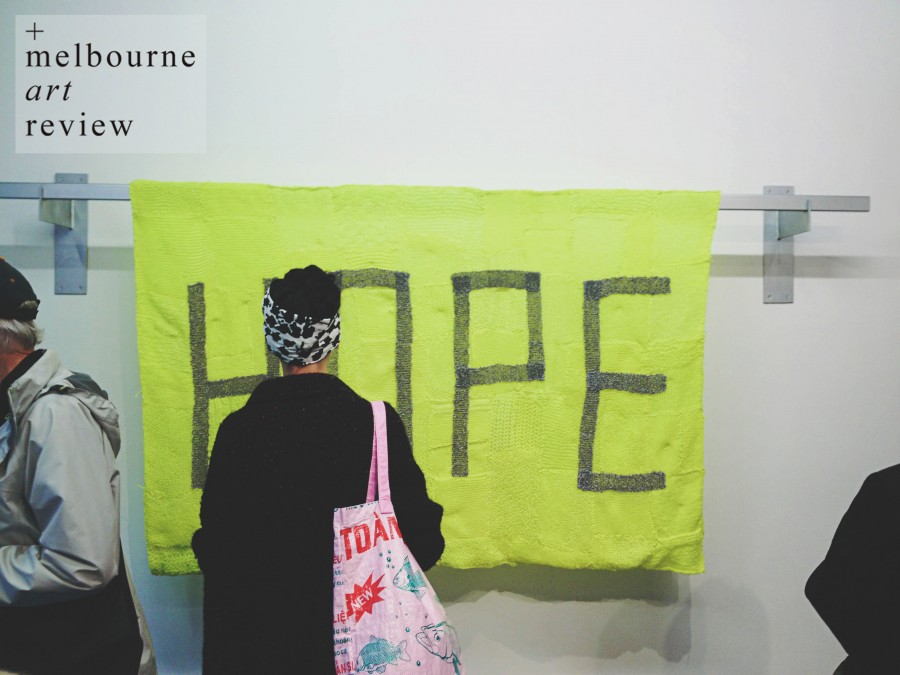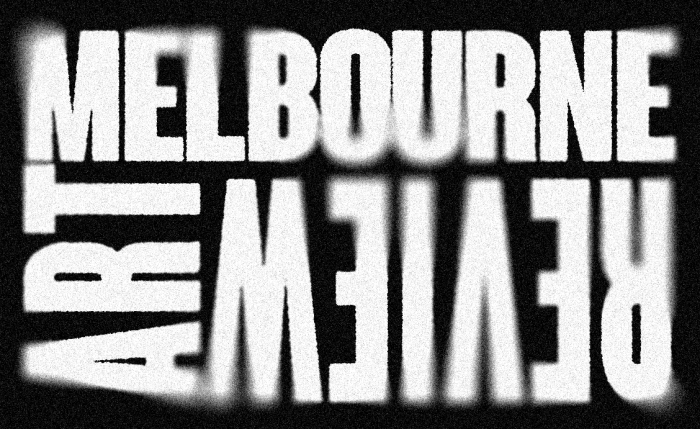Share this:
Amber Stones & Green, Reveal / Conceal & Flickr Films at KINGS ARI
12 January 2015 Comment
Our first show for 2015 (happy New Year everyone!) we attended was the triple opening at Kings.
FRONT GALLERY
Maya Chakraborty, Georgie Glanville, Kate Just, Veronica Kent
curated by Alison Lasek
Amber Stones and Green
MIDDLE GALLERY
Simon Crosbie, Paul Candy, Amanda Laming
Reveal & Conceal
SIDE GALLERY
Christopher Handran
Flickr Films
9 – 31 JANUARY 2015
Please join us for the opening: Friday 9 January, 6 – 8pm
FRONT GALLERY
Maya Chakraborty, Georgie Glanville, Kate Just, Veronica Kent
curated by Alison Lasek
Amber Stones and Green
Luscious and unashamedly joyful, the works of these four Melbourne artists invite us to share in all their bounteous femininity. Intoxicating colour and tactility becomes a visualising stimulus. A sense of freedom is palpable, as is an idealism that’s self aware and strikingly honest.
Amber Stones and Green brings together four individual artistic practices that link to women’s histories and mythologies; that embody a sense of community and hyper-connectivity.
Kate Just revives moments in feminist history in which collective action and craftwork were deployed to enact change, invoking a utopian reimagining of women’s agency within the urban environment.
Maya Chakraborty creates saturated scenes that allow for imagination, wonder and even a bit of pleasure to originate. New perspectives and new ways of seeing are celebrated.
Veronica Kent explores alternate ways of knowing, making and being together by reconstructing a mythology of human vices and virtues and examining it through her own lens of feminine desire.
Georgina Glanville’s work acts symbolically without being fully legible as symbols. They engage us in a range of sensations and emotions by providing an increased awareness of our bodies and flesh.
MIDDLE GALLERY
Simon Crosbie, Paul Candy, Amanda Laming
Reveal & Conceal
Reveal & Conceal investigates the psychological manifestations of abuse and trauma that reveals itself in broad and multilayered states of distress. The investigations of these three artists lead to questions about how the complexity of these issues can be navigated. The collaboration acknowledges the deep failures within institutional governance and the scale of human damage. They explore themes that articulate the disturbed, dis-associative, displaced, disaffected and disillusioned. Through text, architectural abstraction and distortion of figuration, the gallery space becomes haunted with suppressed memories and ruptured identity. At first there is a palpable sense of discovering a nightmarish truth, followed by a cathartic and liberating state of comprehension.
Amanda Laming utalises text components that are a combination of observations sourced from psychology research and autobiographical writing that constitutes a personal narrative. Laming exercises censorship by blanking and veiling some areas of text and using layering and collage as a means of revealing and covering.
Paul Candy investigates the value of articulating a psychological observation through the abstraction of sound and space. Candy has used both a narrative and anti-narrative framework to depict the tension between forms of internal and external states of being.
Simon Crosbie work is an autobiographical piece. The softness and delicacy of wool reinforces the notion of innocence and vulnerability. Underlying is the theme of nurturing, or its absence. The long tentacle like sleeves, are simultaneously delicate and grotesque. The perpetrators arms surround, smother and threaten.
SIDE GALLERY
Christopher Handran
Flickr Films
Christopher Handran explores the mediation of experience by technologies such as cameras, projectors and screens, foregrounding the perceptual dimensions of spectatorship. Handran often revisits or reinterprets devices at the historical intersections of art and science, ranging from historical apparatuses such as the camera obscura to today’s global dissemination of digital images.
Flickr Films reinterprets the structuralist film genre of Flicker Films, which directed the cinematic apparatus towards an exploration of perceptual affect. Artists and film-makers such as Paul Sharits, Tony Conrad and Arnulf Rainer exploited and exaggerated the flickering operation of the film projector to create overwhelming stroboscopic experiences for their audiences. The work considers this analogue assault on the senses in light of today’s constant flow of digital imagery. The proliferation of digital photography and its distribution reflects a shift in our relationship to photographs, from the preservation of moments to their immediate sharing. Flickr Films renders this overwhelming output as perceptual affect.
Christopher Handran has exhibited widely nationally and internationally, including recent exhibitions at Blindside (Melbourne), Feltspace (Adelaide), SkulpturenMuseum Glaskasten Marl (Germany) and The Block (Brisbane). In 2007 he was awarded the Australia Council London Studio, and in 2015 will undertake a residency at the Institute of Cultural Inquiry, Los Angeles.
